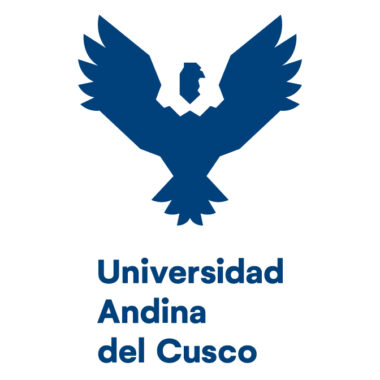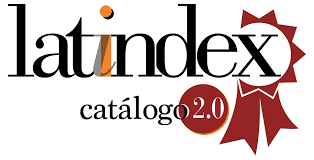Presence of the principle of Subsidiarity in the training of Peruvian Teachers of Basic Bilingual Intercultural University Education
DOI:
https://doi.org/10.36881/yachay.v12i1.668Keywords:
principle of subsidiarity, intercultural education, indigenous teacherAbstract
The present research sought to demonstrate the presence of the principle of subsidiarity in the training of peruvian teachers of Basic Bilingual Intercultural University Education; considering that these teachers do not speak Spanish well nor do they have Spanish as their original language, but rather their own native languages. There is a need for their university education and training as indigenous teachers, in their customs, language, religion, to be subsidized to perform as teachers in their native communities. With a qualitative and hermeneutic research, consulting a sample of 30 teachers, applying a structured interview. It is concluded that the principle of subsidiarity is not present in its entirety in the training as an indigenous university teacher, because it is not focused on intercultural education. It has been demonstrated that they were not educated in their own language and culture, from being as a unique person. For this reason, an intercultural education is necessary that allows training indigenous teachers with the principle of subsidiarity oriented in their own language and culture, ensuring an integral development of the indigenous teacher.
Downloads
References
Aguavil, J. y Andino, R. (2019). Necesidades formativas de docentes de Educación Intercultural Tsáchila. Alteridad, 14 (1), 74-83. https://doi.org/10.17163.alt.v14n1.2019.06
Arias, K. y Quintriqueo, S. (2021). Tensiones epistemológicas en la implementación de la Educación Intercultural Bilingüe. Evaluación y Políticas Públicas en Educación. v. 29, n.111, p. 503-524. https://doi.org/10.1590/S0104-40362020002802249
Behar, D. (2008). Metodología de la investigación: introducción a la metodología de la investigación. Huancayo, Perú. Editorial Shalom.
Catecismo de la Iglesia Católica. [CIC]. (1997). Bilbao, España: Asociación de Editores del Catecismo.
Concilio Vaticano II. (1965). Constitución Pastoral Gaudium et Spes. http://www.vatican.va/archive/hist_councils/ii_vatican_council/documents/vatii_const_19651207_gaudium-et-spes_sp.html.
Compendio de la doctrina social de la Iglesia [CDSI]. (2005). Lima, Perú. Editorial Conferencia Episcopal Peruana.
Congregación para la Doctrina de la Fe. (1987). Instrucción Libertatis Conscientia. http://www.vatican.va/roman_curia/congregations/cfaith/documents/rc_con_cfaith_doc_19860322_freedom-liberation_sp.html.
Espinoza, E. y Ley, N. (2020). Educación intercultural en el Ecuador: Una revisión sistemática. Revista de Ciencias Sociales (Ve), XXVI (Número especial 2), 275-288. file:///C:/Users/Werlin/Downloads/Dialnet-EducacionInterculturalEnElEcuador-7599945.pdf
Guarnizo, F. y Peña, H. (2023). Concepciones de interculturalidad en docentes universitarios: Un análisis de perspectivas para la generación de una propuesta de formación interdisciplinar en el contexto universitario. [Tesis de grado, UNAD]. Repositorio institucional. https://repository.unad.edu.co/handle/10596/54615
Hernández, R., Fernández, C. & Baptista, M. P. (2014). Metodología de la investigación. (6.a ed.). México. McGraw Hill.
Juan Pablo II, (1987). Carta Encíclica Sollicitudo rei socialis. http://www.vatican.va/offices/papal_docs_list_sp.html.
Juan Pablo II, (1991). Carta Encíclica Centesimus annus. http://www.vatican.va/offices/papal_docs_list_sp.html
Monje, C. (2011). Metodología de la investigación cuantitativa y cualitativa. Guía didáctica. https://www.uv.mx/rmipe/files/2017/02/Guia-didactica-metodologia-de-la investigacion.pdf
Pontificio Consejo para la Promoción de la Nueva Evangelización. (2020). Directorio para la catequesis. https://www.arzobispadodelima.org/wp-content/uploads/2020/06/Directorio-para-la-Catequesis-2020.pdf
Rojas-Gutiérrez, W. J (2022). La relevancia de la investigación cualitativa. Studium Veritatis, 20(26), 79–97. https://doi.org/10.35626/sv.26.2022.353
Rojas, F. (2021). El Sistema Educativo Indígena Propio en la Legislación Colombiana. Universidad Santo Tomas. http://hdl.handle.net/11634/33568
Ríos, T. (2005). La hermenéutica reflexiva en la investigación educacional. Enfoques Educacionales, 7(1), 51-66. https://revistahistoriaindigena.uchile.cl/index.php/REE/article/view/48177/50808
Downloads
Published
How to Cite
Issue
Section
License
Copyright (c) 2023 Werlin Pizango-Ushiñahua, William Jesús Rojas-Gutiérrez

This work is licensed under a Creative Commons Attribution 4.0 International License.
You are free to:
- Share — copy and redistribute the material in any medium or format
- Adapt — remix, transform, and build upon the material
- The licensor cannot revoke these freedoms as long as you follow the license terms.
Under the following terms:
-
Attribution — You must give appropriate credit, provide a link to the license, and indicate if changes were made. You may do so in any reasonable manner, but not in any way that suggests the licensor endorses you or your use.













